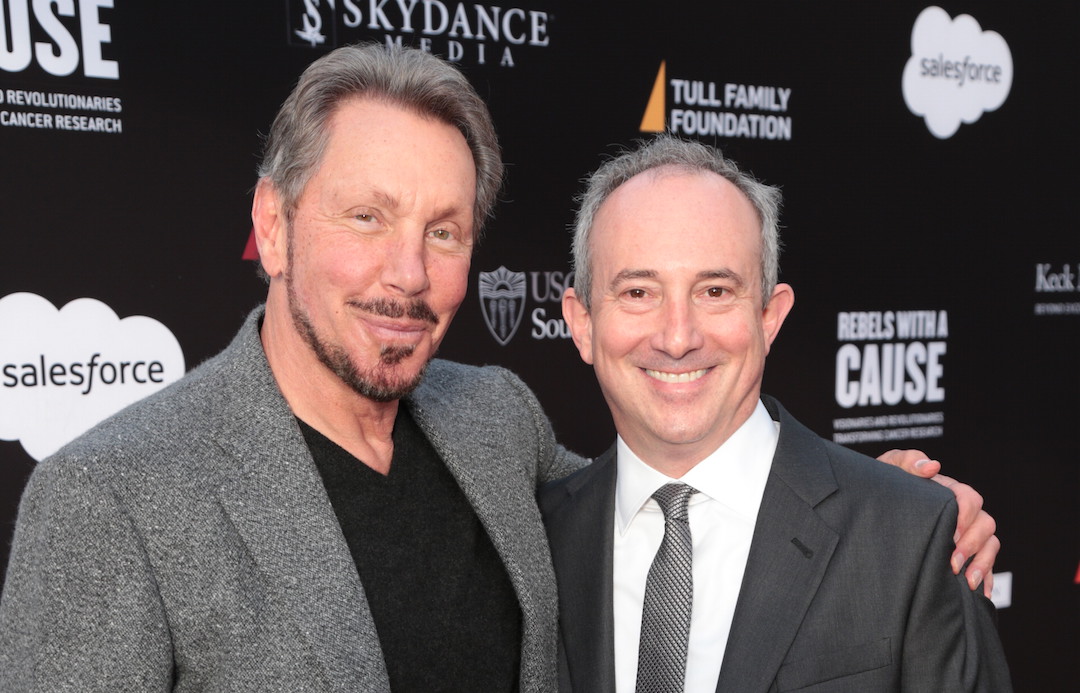In fall 2014 CSQ interviewed revolutionary researcher and oncologist Dr. David B. Agus of USC’s Keck School of Medicine. A passionate advocate for disease prevention, he has written two New York Times bestsellers, The End of Illness and A Short Guide to a Long Life, both of which have been translated into 30 languages. We caught up with Agus to talk about his tireless quest to make strides against disease.
The last time David Agus spoke with CSQ, Oracle founder Larry Ellison recently pledged $4.5M to Agus’ cancer research at the 2012 inaugural Rebels With A Cause charity benefit. Agus had cared for someone close to Ellison who was battling cancer, and doctor and billionaire bonded. That bond has grown exponentially, as evidenced by the announcement in May 2016 that Ellison had given a nine-figure gift to further Agus’ work
It started innocently enough. “Agus, what’s your dream?” Ellison asked, point blank, over breakfast one morning. The answer came easily. “I dream of a place where physicists, engineers, mathematicians…all different domains…can think about this horrible disease we call cancer and have new and different ways of approaching it,” he recalls.
“How much would that cost?” Ellison shot back. Considering for a moment, Agus estimated $200M. “Done,” was Ellison’s response. It was the type of answer, says Agus, “that makes you fall off of your chair and break into tears.” Out of this conversation came the $200M pledge to the University of Southern California to establish the Lawrence J. Ellison Institute for Transformative Medicine. The gift was officially announced at the 2016 Rebels With A Cause gala in May.
“I really believe that we are in [a period of] exponential growth in the progress against these horrible diseases,” says Agus. The new program will certainly be a huge boost.
“For the first time in my career I can walk into a patient’s room with advanced cancer with some optimism and that brings me hope and them hope.”
“It’s encouraging because I’ve learned a lot in talking to physicists and mathematicians and others and I want them to bring their way of thinking to our problems. It’s a very exciting time to be part of what I do,” he continues. “For the first time in my career I can walk into a patient’s room with advanced cancer with some optimism and that brings me hope and them hope.”
Agus is also encouraged by a focus on Big Data toward understanding health, and as an example cites a European study showing that the closer you live to an airport, the higher rate of brain decline.
This big data study led to the powerful observation that the brain needs quiet when going to sleep, and Agus himself has changed his routine based on this idea, even if it means wearing foam earplugs every night so as not to hear the snores of his 150-pound dog.
The idea that we can all do small things each day to stay healthy is one that Agus holds near and dear. “I’m very attentive to the concept of regularity in schedule. I eat my meals at the same time every day and eat nothing in between. That’s critical to maintaining health.”
He also points out the importance of movement. “I try to rearrange my day to encourage movement over time so I try to have at least one walking meeting a day. I have a treadmill desk in my office for when I answer email. I try to exercise in the morning before I go to work.”
Agus is the first to point out the reality that each of these things might not happen every single day without fail, but that’s not the point. “Am I perfect? No, not even close, but I really try to push in that regard as much as I can.”
In fact, all of us can, and should, as well. Agus is a believer in controlling our health destiny through awareness. His latest book, The Lucky Years: How to Thrive in the Brave New World of Health, published in January 2016.














































